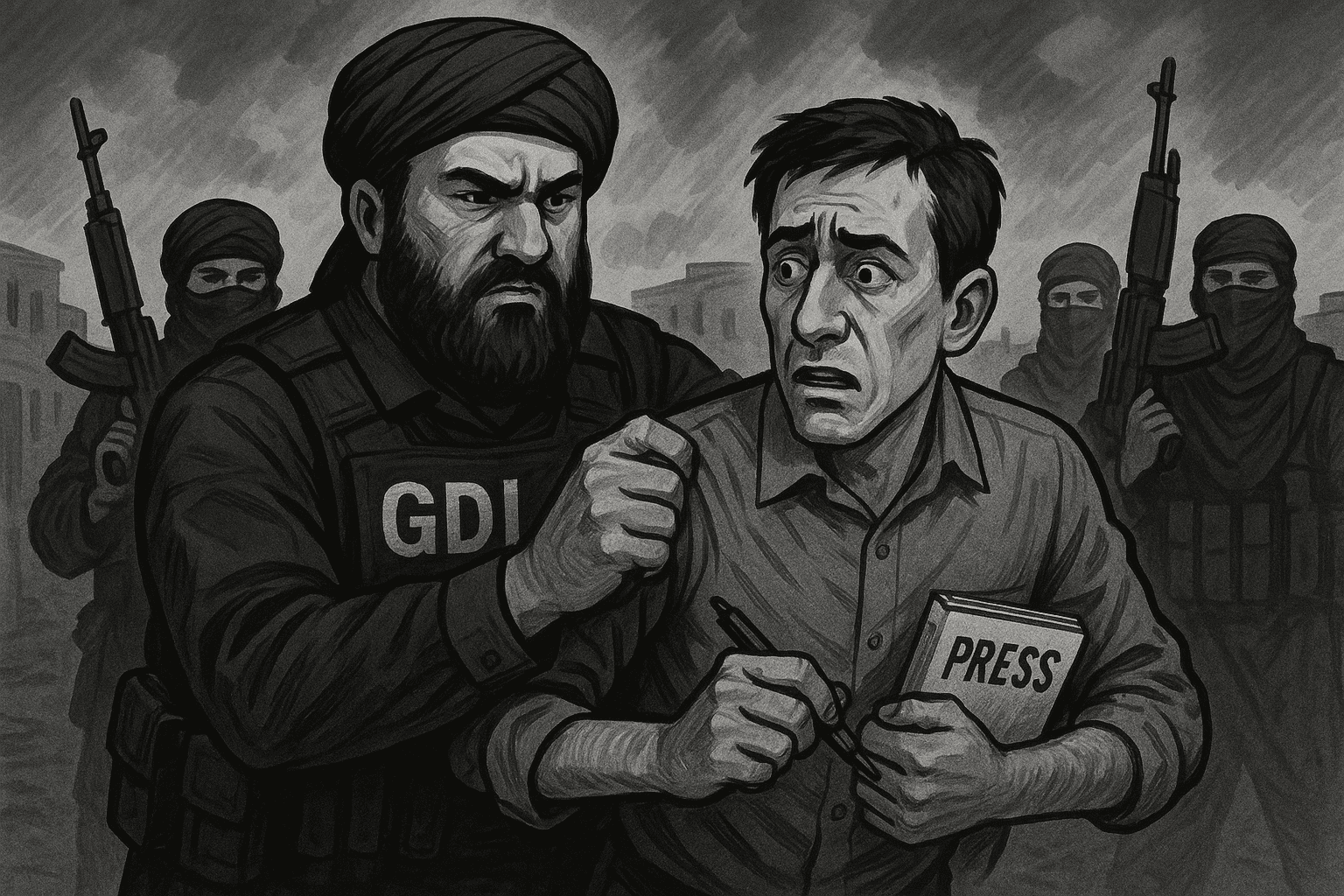The General Directorate of Intelligence (GDI), the Taliban’s intelligence agency, has escalated its suppression of independent journalism in Afghanistan, detaining and intimidating numerous journalists across the country.
The latest victim of GDI is journalist Sulaiman Rahil, who was detained by GDI agents on May 5, without providing any explanation or charges, according to Committee to Protect Journalists (CPJ).
“Sulaiman Rahil is the latest of many Afghan journalists to be swept up by the notorious General Directorate of Intelligence without explanation or charge,” said CPJ Asia Programme Coordinator Beh Lih Yi.
“The Taliban continue to show zero tolerance for independent journalists who report anything other than the group’s strictly censored narratives. The Taliban’s intelligence agency is attempting to control the media through fear and to prevent any honest reporting about the difficulties of life in Afghanistan today.”
Rahil, director of the local, independent Radio Khushal, was detained in Ghazni city after publishing a video on Facebook highlighting the plight of two impoverished women.
In a separate incident on April 14, independent journalist Sayed Rashed Kashefi was detained in Kabul by GDI agents.
The GDI’s tactics extend beyond individual detentions.
On December 4, 2024, GDI agents raided the offices of Arezo TV in Kabul, detaining seven journalists and media workers. Female journalists were expelled from the premises, and the network’s offices were sealed.
These actions are part of a broader trend of media repression since the Taliban’s return to power in 2021. According to a United Nations report, journalists in Afghanistan face challenging conditions, with unclear rules on permissible reporting and the risk of intimidation and arbitrary detention for perceived criticism.
The UN report noted that journalists have been detained over 250 times since the Taliban takeover.
CPJ has documented numerous cases of censorship, assaults, arbitrary arrests, and restrictions on female journalists, all aimed at muzzling independent reporting. The media landscape in Afghanistan has been decimated, forcing journalists to work in a climate of fear and robbing the Afghan people of the right to access information.
The international community continues to call on the Taliban to uphold press freedom and ensure the safety of journalists. However, the GDI’s ongoing actions suggest a persistent effort to control the narrative and suppress dissenting voices within Afghanistan, right campaigners said.
In the 2025 World Press Freedom Index released by Reporters Without Borders (RSF), Afghanistan was ranked 175th out of 180 countries. This placement reflects a press freedom score of 17.88.
The ranking indicates significant challenges for journalists in Afghanistan, particularly since the Taliban’s return to power, with increased persecution and a lawless environment for the media, they said.


